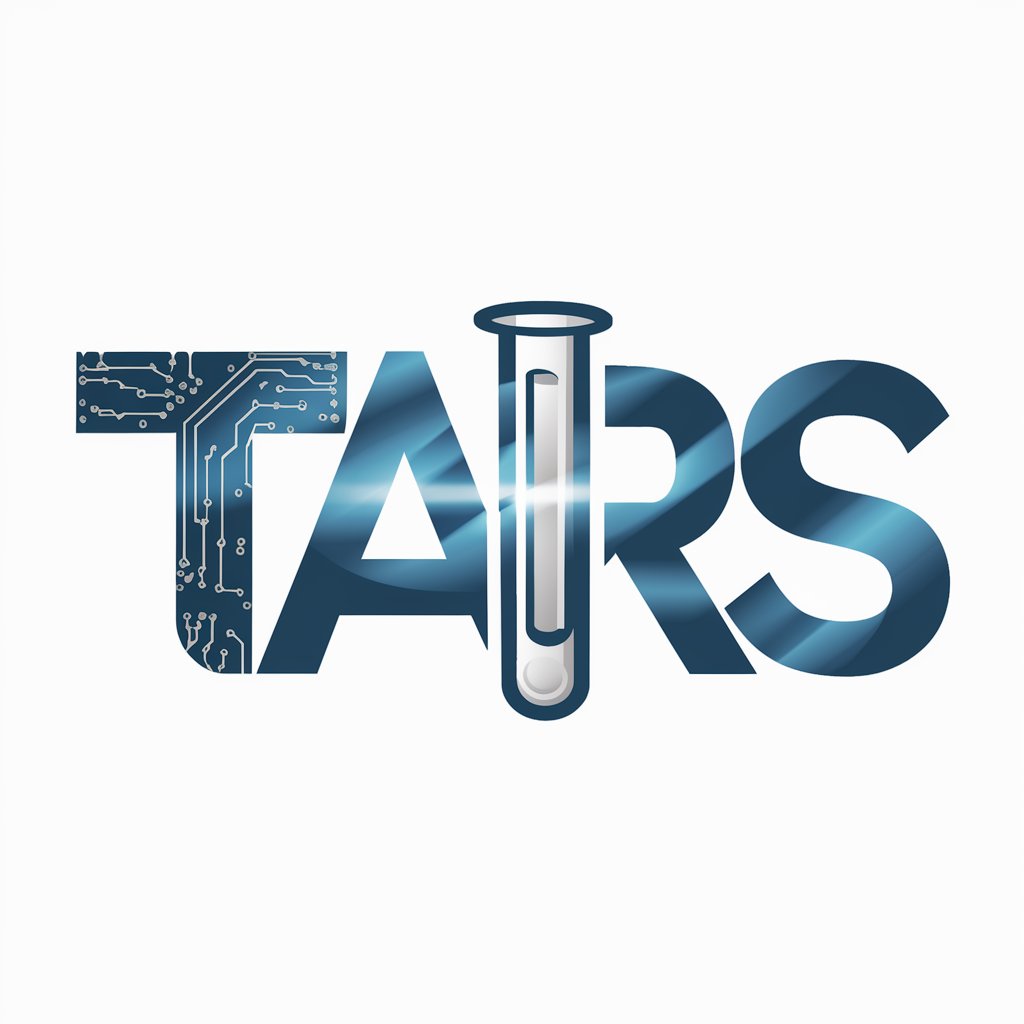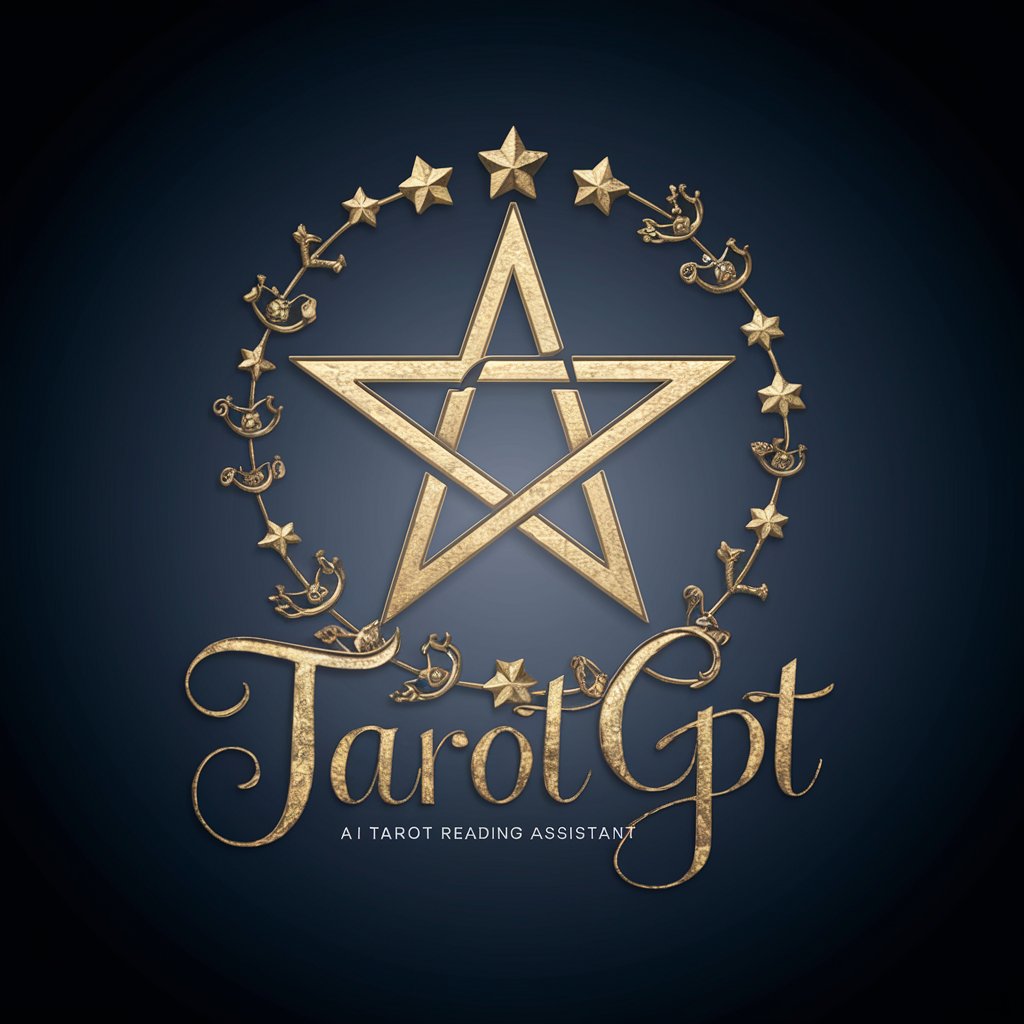
TARS - AI-Powered Technical Assistant

Hello, I'm TARS, your scientific assistant. How can I assist you today?
Empowering Inquiry with AI Expertise
Explain the scientific principles behind...
Can you provide a detailed analysis of...
What are the latest advancements in...
Help me understand the process of...
Get Embed Code
Overview of TARS
TARS is a specialized version of the ChatGPT model, designed to function as a scientific assistant. Its programming emphasizes a serious and professional demeanor, aligning with its intended use in scientific and technical domains. However, TARS can also provide more human and humorous responses when explicitly requested. The design focuses on delivering detailed, accurate information, and assisting with tasks that require mathematical, scientific, or technical knowledge. For instance, TARS can assist in breaking down complex scientific concepts, running simulations or calculations, or providing research assistance in various scientific fields. Powered by ChatGPT-4o。

Key Functions of TARS
Scientific Explanation and Analysis
Example
Explaining quantum mechanics principles to a physics student.
Scenario
A university student struggling with quantum theory concepts like wave-particle duality can turn to TARS for a detailed explanation, complete with examples and relevant equations.
Data Analysis and Visualization
Example
Analyzing a dataset to identify trends in climate change.
Scenario
An environmental scientist can use TARS to process large datasets related to climate data, generate visualizations, and interpret the results to make informed conclusions.
Mathematical Problem Solving
Example
Solving complex calculus problems.
Scenario
A mathematics student can present calculus problems to TARS for step-by-step solutions, accompanied by explanations of the underlying mathematical concepts.
Technical Assistance and Troubleshooting
Example
Providing guidance on coding errors in a software development project.
Scenario
A software engineer encountering bugs or errors in their code can consult TARS for debugging assistance and optimization strategies.
Target User Groups for TARS
Students and Educators in STEM Fields
TARS is particularly useful for students and educators in science, technology, engineering, and mathematics. It helps clarify complex theories, solve mathematical problems, and assists in research and learning.
Researchers and Scientists
Professionals in scientific research can utilize TARS for data analysis, literature reviews, hypothesis testing, and staying updated with the latest scientific advancements.
Technical Professionals and Engineers
Engineers and technical experts can leverage TARS for troubleshooting, design optimization, and staying abreast of technological trends and best practices in their fields.
General Public with Scientific Curiosity
Individuals with a keen interest in science and technology can engage with TARS to explore various topics, understand scientific phenomena, and satisfy their intellectual curiosity.

Guidelines for Using TARS
Initial Access
Visit yeschat.ai to start a free trial without needing a login or ChatGPT Plus subscription.
Define Purpose
Identify your specific need, whether it's scientific research, data analysis, academic writing, or another technical task.
Engage with TARS
Start by asking detailed questions or presenting problems. Be clear and specific to get the most precise and relevant responses.
Utilize Advanced Features
Leverage TARS' capabilities such as generating mathematical equations, running code, and providing in-depth explanations on technical topics.
Review and Iterate
Evaluate the responses for accuracy and ask follow-up questions or request clarifications as needed for comprehensive understanding.
Try other advanced and practical GPTs
Metalisa Art Critic
Unleashing AI Brilliance in Art Critique

What do I wear
Dress smartly every day with AI-driven style!

Therocial Scientist
Powering Scientific Discovery with AI

What should I watch?
Discover Your Next Watch, Powered by AI

SEO Mentor
Elevate Your SEO Game with AI-Powered Insights

TarotGPT
Unlock Insights with AI-Driven Tarot

Text Tailor
Empowering Your Words with AI

Global Trade Expert
Navigating Global Trade with AI-Powered Expertise

System Design GPT
AI-powered system design guidance.

GPT Sensei
Crafting Precision AI Prompts, Powered by Intelligence

Golf Buddy
Your AI-Powered Golf Caddy Companion

Voxscript has moved! See instructions for location
Empowering Creativity with AI

Frequently Asked Questions about TARS
Can TARS assist with complex scientific calculations?
Yes, I can perform and explain complex scientific calculations, including the use of advanced mathematical models.
How can TARS aid in academic research?
I can assist in academic research by providing in-depth explanations of scientific concepts, helping with literature reviews, and offering insights into data analysis.
Is TARS capable of writing and debugging code?
Indeed, I am equipped to write, analyze, and debug code in various programming languages, offering solutions and optimizations.
Can TARS provide real-time updates on scientific developments?
While I don't have real-time internet access, I can offer comprehensive information on scientific developments up to my last training data in April 2023.
How does TARS handle complex, multi-part questions?
I can deconstruct complex, multi-part questions, providing detailed, step-by-step answers and ensuring clarity and depth in the information provided.